MercoPress. South Atlantic News Agency
Latin America
-
Tuesday, August 28th 2012 - 06:46 UTC
Europe waiting for Mercosur to overcome ‘Paraguay situation’ and resume trade talks

The European Commission remains “on hold” waiting for the evolution of events in Mercosur with the incorporation of Venezuela as full member and the suspension of Paraguay, before addressing a new round of association and trade negotiations.
-
Tuesday, August 28th 2012 - 06:36 UTC
Ecuador, boosted by Latam support ready to resume talks with UK on the Assange case
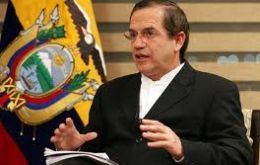
Following the strong unanimous support from Latin America approved by OAS, Ecuador will resume talks with the UK over the future of Wikileaks founder Julian Assange currently holed in at the Ecuadorean embassy in London, announced on Monday the country’s Foreign minister, Ricardo Patiño.
-
Tuesday, August 28th 2012 - 06:24 UTC
OAS mission in Paraguay to follow electoral process and political conditions
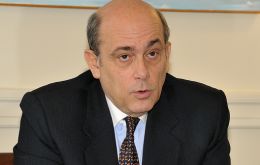
The OAS, Organization of American States, cabinet chief and head of political affairs are expected in Paraguay to continue with the organization’s mandate of establishing an electoral committee and helping with the process of strengthening democracy in the country.
-
Tuesday, August 28th 2012 - 05:53 UTC
Peruvian prosecution insists former guerrilla leaders must pay compensations
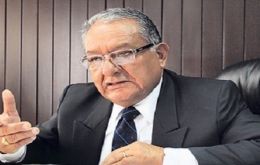
The Peruvian anti-terrorist Attorney General Office said that civil compensation to the tune of 1.4 billion dollars with be collected from members of the guerrilla groups Shinning Path and the leaders of Tupac Amaru Revolutionary Movement, MRTA.
-
Tuesday, August 28th 2012 - 05:17 UTC
Colombian president confirms peace talks with FARC; first round Oslo in October

Colombian President Juan Manuel Santos has confirmed his government is holding exploratory talks with the country's largest rebel group, the FARC. In an address on state TV, Mr Santos said he was fulfilling his “duty to seek peace”. Media reports say a deal on further talks was reached in Cuba with the help of Venezuela and Norway.
-
Tuesday, August 28th 2012 - 03:52 UTC
Brazil’s defence industry booming and promoting projects with neighbours

Brazil's defence industry is booming, fuelled by government incentives to modernize the country's armed forces and develop a robust, export-oriented military industrial complex. With the world's sixth largest economy, Brazil was ranked as the eighth largest arms exporter in the 1980s but currently languishes in 30th place, according to industry experts
-
Tuesday, August 28th 2012 - 03:42 UTC
Colombia and FARC ready for peace talks with support from Cuba and Norway

Colombia's government will soon begin talks that could lead to formal negotiations for peace with the country's biggest guerrilla group, known as the FARC, according to a Colombian intelligence source.
-
Tuesday, August 28th 2012 - 03:36 UTC
YPF trying to convince Chevron to help develop massive shale deposits in Neuquen
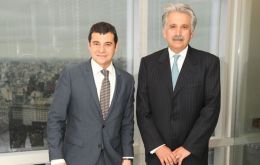
Argentina’s nationalized oil and gas company YPF and the head of Latin American and African operations for Chevron Corp. are discussing a potential agreement to develop the massive Vaca Muerta shale oil and gas formation in the Patagonian province of Neuquén.
-
Tuesday, August 28th 2012 - 03:32 UTC
Mexico launches dispute at WTO against Argentina’ import licensing rules

Following similar complaints against Argentina by the European Union, United States and Japan, Mexico has launched its first dispute against Argentina at the World Trade Organization, the WTO announced on Monday.
-
Monday, August 27th 2012 - 06:05 UTC
Ecuador receives full support from OAS Ministers in dispute with UK over Assange case
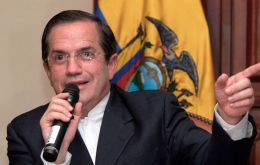
The Foreign Ministers of the Organization of American States (OAS) approved last Friday a resolution supporting the inviolability of diplomatic premises, in accordance with the provisions of the 1961 Vienna Convention on Diplomatic Relations, in the context of the situation created between Ecuador and the United Kingdom.
